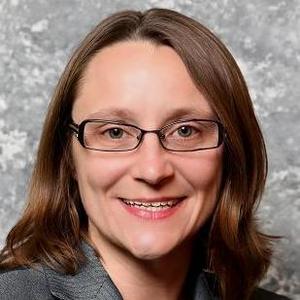Genscape introduces customizable QAP plans, readiness assessments

January 15, 2014
BY Genscape Inc.
With the U.S. EPA’s final quality assurance plan (QAP) ruling expected this winter, Genscape is reporting a growing demand for its QAP and other RIN integrity solutions with more than 40 producers already participating. Producers participating in Genscape’s QAP services have observed an increase in the price they get for their RINs once they have achieved the compliance status. An increasing number of downstream buyers are requiring QAP as part of their RIN purchasing risk management.
One key differentiator driving demand in Genscape’s program is its ability to deliver high-tech, low-touch monitoring-based QAP solutions that allow producers the flexibility to offer QAP-A and QAP-B RINs to their buyers at a low cost. As exhibitors and presenters at the 2014 National Biodiesel Conference & Expo in San Diego this month, Genscape’s experts will be offering customizable QAP plans and readiness assessments to qualified attendees upon request.
Genscape’s validation process utilizes the company’s proprietary monitoring technology to offer a cost-effective and independent solution to ensure producers are meeting the EPA’s RFS2 regulations. Genscape’s patented technology option reduces the workload associated with a QAP program and minimizes the impact on producers’ daily operations. The option Genscape creates by using technology allows the company to redefine traditional auditing by providing a suite of compliance services at no additional cost.
“The producers we’re working with are reporting that our one-stop-shop for QAP services is helping them focus on getting more value for their fuel,” said Susan Olson, vice president of agriculture and biofuels at Genscape. “Furthermore, it’s helping to level the playing field. With a low-cost, comprehensive solution, any size producer can get in the game and sell their RINs for a premium price.”
Advertisement
With Genscape’s QAP option based on ongoing monitoring, quarterly audits are not required. With the monitoring option, producers have the ability to flex between A-RINs and B-RINs depending on the level of assurance needed. Using this flexibility, a producer can meet different requirements from various counterparties and optimize its QAP strategy.
At the National Biodiesel Conference & Expo, Genscape’s Olson and Robert Barton will also be offering their expertise in a panel on Tuesday morning at 9 a.m., Navigating the QAP, in which they’ll discuss available resources, findings to date and strategies for success surrounding QAP. Olson will also provide insight on improving market efficiency with better data and electronic trading as part of the Wednesday afternoon panel “Transparent Transactions: Creating Balance Among Buyers and Sellers.”
Advertisement
Related Stories
The U.S. Energy Information Administration maintained its forecast for 2025 and 2026 biodiesel, renewable diesel and sustainable aviation fuel (SAF) production in its latest Short-Term Energy Outlook, released July 8.
XCF Global Inc. on July 10 shared its strategic plan to invest close to $1 billion in developing a network of SAF production facilities, expanding its U.S. footprint, and advancing its international growth strategy.
U.S. fuel ethanol capacity fell slightly in April, while biodiesel and renewable diesel capacity held steady, according to data released by the U.S. EIA on June 30. Feedstock consumption was down when compared to the previous month.
XCF Global Inc. on July 8 provided a production update on its flagship New Rise Reno facility, underscoring that the plant has successfully produced SAF, renewable diesel, and renewable naphtha during its initial ramp-up.
The U.S. EPA on July 8 hosted virtual public hearing to gather input on the agency’s recently released proposed rule to set 2026 and 2027 RFS RVOs. Members of the biofuel industry were among those to offer testimony during the event.
Upcoming Events










